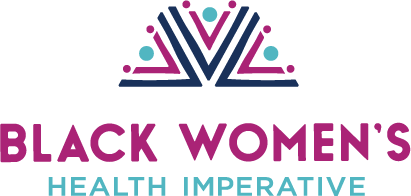Polycysta-who?
Okay, first things first. You can’t understand PCOS without understanding ovarian cysts. And you can’t do that without understanding the ovaries.
The ovaries produce your eggs, so they play a big role in making little ones. Ovarian cysts are fluid-filled sacs that form in or on one of your ovaries.
They’re very common—most women develop these cysts at some point in their lives. And they’re also usually harmless and have no symptoms.
Polycystic ovary syndrome (PCOS) is a little different. Even though women with PCOS tend to have many cysts, it’s not all about the cysts.
Here’s What Happens To Your Body
All women have both female and male hormones. PCOS develops when your ovaries or adrenal glands produce more male hormones than they’re supposed to. This causes symptoms like irregular periods (or no periods), or pain during your period.
PCOS can also make itself known throughout the whole body, not just in the vajayjay. If you have PCOS, you may have symptoms like:
- Extra body hair on the face, belly, chest, or around the nipples
- Acne on the face, back, or chest
- Skin changes, like creases or markings around the groin, neck, breasts, and armpits
- Thinning hair on the head
- Mood swings, anxiety, or depression
- Fatigue
- Sleep problems, like sleep apnea or insomnia
- Weight gain
PCOS can also increase your risk of developing Type 2 diabetes, heart disease, or high blood pressure.
Don’t freak out just yet—there is relief for many of these symptoms. Birth control pills can make your periods regular, lighter, and less painful. They can also help clear up that acne and reduce the weird hair growth.
Metformin—a diabetes medication—can also be used to make periods regular, help you shed those excess pounds, and prevent Type 2 diabetes.
And of course, losing weight and getting active can decrease your risk of diabetes, heart disease, or high blood pressure.

Here’s Why You May Have Trouble Getting Pregnant
Lack of ovulation—a.k.a. the ovaries don’t release eggs to be fertilized—is the main cause of infertility in women with PCOS. But, it’s not necessarily the only reason.
Women with PCOS tend to gain weight, and have a higher risk of obesity. The extra weight can cause the body to produce too much of the hormone insulin. Together, the excess weight and insulin can lead to problems getting pregnant.
There is good news: The damage isn’t permanent. Losing weight can help women with PCOS get that baby bump.
Here’s What You Can Do To Get Pregnant
Besides losing weight, there are ways for women with PCOS to urge the babymaking process along.
If you’re trying to get pregnant, but PCOS is standing in the way, one option is to take fertility drugs. Clomiphene (Clomid) is usually the go-to choice, but some fertility specialists opt for letrozole (Femara). There is one caveat—fertility drugs do make it more likely that you’ll end up with more than one kiddo growing in there.
When pills aren’t cutting it, the next step may be to get hormone injections that cause ovulation, or surgery to increase the likelihood of ovulation.
If none of those treatments are working, your provider may recommend in vitro fertilization (IVF). In IVF, the egg and sperm are fertilized in a dish outside of the body, and then the fertilized egg is put into the uterus (womb). IVF is often the best way for women with PCOS to get pregnant, but it can be pretty costly—and it’s not always covered by insurance.
Here’s What Happens During Pregnancy
After months (years?) of waiting and trying, you’ve kicked PCOS in the you-know-what. You’ve gotten pregnant. Now what?
Women with PCOS can have safe pregnancies and healthy babies, but it does require a little extra self-care and work with your health care team.
That’s because women with PCOS have a higher risk of certain pregnancy and delivery complications. They are three times as likely as women without PCOS to miscarry.
Other possible complications include:
- Gestational diabetes: This is diabetes developed during pregnancy. This can cause a baby to be very large, and need to be delivered via cesarian section.
- Preeclampsia: A sudden increase in blood pressure occurs after the 20th week of pregnancy. It can damage the mother’s kidneys, liver, or brain. Preeclampsia also increases the risk of premature birth (before 37 weeks pregnancy) and low birth weight.
- Premature birth: This is birth before 37 weeks of pregnancy. Babies born prematurely can have long-term health issues, like autism, asthma, or cerebral palsy.
- Cesarian section delivery (c-section): The baby is taken out through the abdomen, rather than delivered vaginally. C-sections are generally safe, but they can raise the risk of difficulties with future pregnancies.
Here’s How PCOS Affects Black Women
PCOS affects women of all races and ethnicities, but there are some unique ways in which it may affect Black women. Black women with PCOS may have:
- Increased rates of hirsutism (excess hair growth in typical male patterns, but on a female)
- Higher risk of cardiovascular disease or metabolic syndrome
- Lower likelihood of getting pregnant (Black women do not have as much success with in vitro fertilization as white women, and they’re also more likely to be obese—a risk factor for infertility)
If all of this information is making your head spin—and your heart sink—remember: there is hope. Give your doctor a call to discuss how you can keep PCOS from being a real pain in the—well, you know.
Have friends who are also asking, “What is PCOS?” Sharing is caring—don’t keep the knowledge to yourself.


